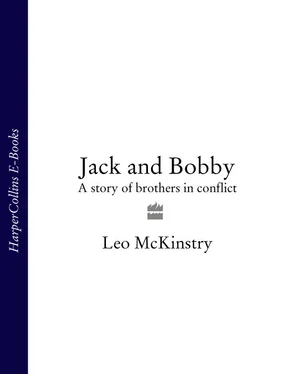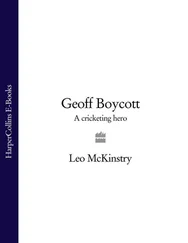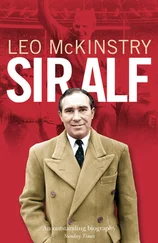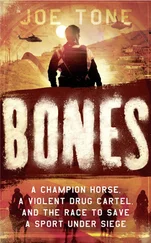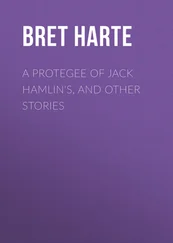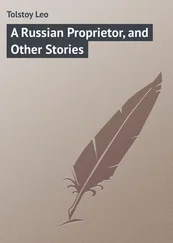And so it remained for the rest of their lives. While on the football field their careers flourished, the rift between the brothers grew in private. This mutual antagonism was fuelled not only by the tragedy of the Munich air crash in 1958, which made Bobby even more introspective and distant, but also by a long-term feud between their closest relatives, which tore Jack and Bobby apart and left them barely on speaking terms.
Given the fascinating contours of the Charltons’ tale, it is remarkable that there has never been a comprehensive, joint biography until now. The only previous book on them was written more than thirty years ago, in 1971, by the New Zealander Norman Harris. Though it provides some compelling insights, particularly about their early lives, it is based entirely on their own testimony and uses hardly any other sources. The shelf is equally bare when it comes to separate biographies. Astonishingly, despite the deluge of books on Manchester United stars – even Dennis Viollet, winner of just two England caps, was the subject of a 333-page work in 2001 – no-one has ever attempted to write a life of England’s greatest living footballer, Sir Bobby Charlton, while Jack has been rewarded with just a thin 1994 account from journalist Stan Liversedge. Moreover, unlike Jack, who penned a bestselling autobiography in 1996, Sir Bobby has never written his own life story. Since his retirement as a player, all he has produced is one light book of soccer anecdotes.
It is my hope that, with this joint biography, I will go some way towards rectifying this strange gap in British football literature. No-one can dispute the vast contribution the Charltons have made to the soccer of our islands over the last half century. It is now right that the story behind that contribution should be told for the first time.
‘If ever I’m feeling a bit uppity, whenever I get on my high horse, I go and take another look at my dear mam’s mangle that has pride of place in the dining room of my home. The mangle has the greatest significance. It is the symbol of my beginnings. It serves as the reminder of the days when I learned what life was all about.’ These are the words with which Brian Clough, another footballer from a north-eastern family, begins his autobiography, emphasizing how much his mother meant to him.
The mother of the Charlton brothers was an equally dominant figure in their upbringing. Born Cissie (a shortening of Elizabeth) Milburn, she was the classic matriarch: strong, passionate, sociable, and outspoken, as protective of her brood as she was ambitious for them. Her husband, Bob, could hardly have been more different. A coalminer who spent his whole working life underground, he was quiet, dry, undemonstrative, but strong-willed. Indeed, it is striking how, in their personalities, Jack seems to have taken after his mother, and Bobby after his father, though, like Jack, old Bob could be quick-tempered if the mood took him. Walter Lavery, who grew up with Bobby and Jack, recalls: ‘You would go round to their house after playing in the park, and old Bob would be sitting by the fire, in his braces, just reading the paper. Cissie would be talking away, asking you all about football and school, while Bob made no contribution at all. It was not that he didn’t like his children, but just that he didn’t like the fuss.’
What made the influence of Cissie all the more powerful was the fact that football was in her blood. Her great-grandfather and grandfather, both called Jack, had played for top-class local sides in Northumberland, while her own father – yet another Jack but known universally as ‘Tanner’ Milburn – played in goal for Ashington FC when the club was in the old Third Division North in the 1920s. All four of her brothers played League football as full-backs: Jack, George and Jimmy for Leeds and Stan, the youngest of the quartet, for Chesterfield, then Leicester and Rochdale. Her cousin, ‘Wor’ Jackie Milburn, the greatest of all the family soccer stars before the arrival of her sons, won 13 England caps and three FA Cup winners’ medals as a striker with Newcastle. It is hardly a surprise, then, that Cissie herself should have become a serious football enthusiast, with an understanding of the game that surpassed most male fans. She often said that she wished she had been born a boy. ‘For years, I kicked footballs around the parks and back streets of Ashington with a bunch of lads, usually with my skirt tucked into my knickers,’ she said in her autobiography. Bobby Whitehead, who played for Newcastle and was another contemporary of Jack and Bobby’s, remembers, ‘When we played at school or in the park, there would usually be a few dads around. But there was nearly always one woman there, Cissie Charlton, who would be able to shout more loudly than most fathers. And she would travel with the school team on the bus to away games. She was so wrapped up in the game and was very knowledgeable about it.’
Cissie Charlton’s fixation with soccer might have been rare in a woman in that era, but just as odd was her husband’s total indifference to the sport, given its grip on masculine working-class culture in the north-east. Bob Charlton had absolutely no interest in football. He never went to games with his wife, never played and, in 1966, did not even watch the World Cup semi-final between England and Portugal – regarded by many as his son Bobby’s greatest-ever match – preferring to work his shift down the mine. The two sports he enjoyed were boxing and pigeon fancying. Like many miners used to back-breaking manual labour, he was a good fighter, sometimes holding his own against travelling professionals who earned their living by touring the country and setting up challenges with local men. In fact, Bob won the money to buy Cissie a wedding ring in just such a bout. Later, he would help train boxers in the area, earning the nickname ‘Boxer’. Pigeons were his other great interest. ‘I remember old Bob sitting, very quiet and still, by his loft on his allotment, where he kept his pigeons. His conversation was always limited. And he had a catapult with him. Suddenly he fired it, straight up the arse of a cat. Pigeon fanciers hate cats,’ recalls Ron Routledge, an Ashington local who went on to play League football for Sunderland. But it should not be thought that Bob had any streak of cruelty. He was actually a soft-hearted man, who felt so sorry for the pit ponies that he would regularly bring them treats. Once he even purchased one of them because he could not bear the thought of her being taken to the knacker’s yard. He was so devoted to the animal, going out at all hours of the night to see her, that Cissie thought he was having an affair.
Bob’s lack of enthusiasm for football was particularly striking in Ashington, because soccer and coalmining were the twin forces that shaped the town. By 1930, it boasted that it was ‘the biggest mining village in the world, with more than a third of its 30,000 population employed in the coal industry. And coal had a direct influence on soccer, the chief recreation of the town. The Ashington Colliery Welfare ground had no less than seven pitches, catering for three separate leagues and more than 20 local sides, many of them playing to a high standard. The upkeep of these excellent facilities was maintained by a penny a week off the miners’ pay. In addition, all the working men’s clubs had their own sides. No wonder, in view of such enthusiasm, Ashington was able to produce a stream of League football professionals, such as Joe Bell of Middlesbrough, Jim Potts, the Leeds goalkeeper, and George Prior of Sheffield Wednesday. Perhaps the most interesting case is that of the great Jimmy Adamson, captain of the Burnley championship-winning side of 1959/60 who, like both Bobby and Jack, was awarded the title of Footballer of the Year. Coincidentally, Adamson grew up in Beatrice Street, where the Charlton brothers also lived – I doubt there is any other terrace in Britain that has produced three Footballers of the Year. The eagerness for football rubbed off on the boys of Ashington, who spent most of their free time kicking a ball around in Hirst Park and then, when darkness descended, continued in the streets, their play illuminated by the overhead lamps. Such games were illegal and could result in heavy fines if the participants were caught, so lookouts were posted at each end of the street to warn of the approach of a police officer. ‘Everything in our lives was football-orientated. That’s all we were interested in,’ says Walter Lavery. ‘We were so fanatical that even when the football season was over in the summer, and the council was trying to allow the grass to grow long in Hirst Park, we would still take out a ball, flatten down a patch of grass in one corner of the ground and get a game going.’
Читать дальше
